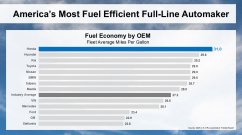Hero MotoCorp’s Chairman and Managing Director, Pawan Munjal has expressed his views about the need to cut the GST on two-wheelers from the current 28 per cent to 18 per cent. Munjal argues that the two-wheelers should be removed from the luxury goods bracket and taxed under mass-usage items.

Also read: 5 Exciting upcoming Hero bikes in India - XPulse 200, New Karizma…
Speaking about the GST for two-wheelers, Pawan Munjal said:
Given that two-wheelers provide basic mobility to the masses, there is an urgent need to reduce the GST rate on two-wheelers from the 28 per cent bracket of ‘luxury goods’ to that of 18 per cent for mass-usage items.
Hero MotoCorp suffered from negative sales in December, a 3.9 per cent decline at 453,985 units. In comparison, the company sold 472,731 units in the corresponding month 2017. The two-wheeler brand cited the increased two-wheeler insurance cost as the reason behind the fall. With the upcoming safety standards and the BS-VI upgrade, prices for vehicles sold in the country would rise even further. A reduced GST rate would help manufacturers get cushioning from this double whammy.
Bajaj Auto’s Managing Director, Rajiv Bajaj, however, disagrees. Expressing his views about the tax structure for two-wheelers, Bajaj said:
The industry shouldn’t expect anything from a government that has to bail out IL&FS (Infrastructure Leasing & Financial Services) and Air India. It should focus on products and not rely on government sops.
Bajaj further added:
In motorcycles, the sports segment – where Pulsar is the leader – is growing at 25 per cent, although products here are 50 per cent more expensive than in the mid commuter segment. So I don't think that reducing the GST by 10 percentage points is necessarily the only answer. The industry perhaps should focus more on products than on sops.

Also read: Check out the Bajaj Pulsar 150 Neon Yellow in a detailed walkaround
However, Bajaj isn’t completely against a GST cut and says that if the government plans one, they should time it with the safety norms of April 1, 2019, or emission norms of April 1, 2020. He added that a hurriedly announced duty cut can have a detrimental impact on sales and lead to a fall in demand.
[Source: Business-Standard.com]






















